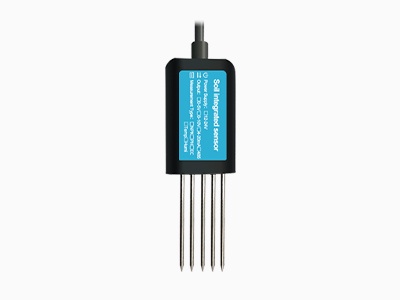NPK sensor become a game-changing tool that enables farmers to accurately monitor and manage nitrogen (N) phosphorus (P) and potassium (K) in the soil. This article will explore the significance of NPK sensors and explain how they work; Emphasis is placed on their application; They also highlight their role in promoting efficient and eco-friendly agricultural practices.

Importance of Nutrient Management:
The nutrients N, P, and K are vital for plant growth, development, and overall productivity. Imbalances or deficiencies in these nutrients can lead to reduced crop yields, nutrient runoff, and environmental pollution. Effective nutrient management requires regular monitoring and adjustment to meet the specific needs of different crops and growing conditions.
How an NPK Sensor Works:

An NPK sensor utilizes advanced technology to measure the concentration of nitrogen, phosphorus, and potassium in soil samples. These sensors employ various techniques such as spectrometry, electrochemical analysis, or fluorescence to determine nutrient levels accurately. The collected data can be displayed on the sensor itself or transmitted to a connected device for analysis and interpretation.
Applications of NPK Sensor:
a) Precision Agriculture:
NPK sensors enable farmers to adopt precision agricultural practices by providing real-time nutrient data. This allows for targeted fertilization, ensuring that crops receive the precise amount of nutrients required at specific growth stages. By avoiding over-application, farmers can reduce costs, minimize nutrient leaching, and mitigate environmental impacts.

b) Soil Health Monitoring:
NPK sensors contribute to assessing soil fertility and health by providing insights into nutrient availability. Farmers can identify nutrient deficiencies or excesses, enabling them to rectify imbalances through appropriate fertilization strategies. Balanced nutrient levels promote healthier plants, stronger root systems, and improved resistance to pests and diseases.
c) Crop-Specific Nutrient Management:
Different crops have unique nutrient requirements. NPK sensors assist farmers in tailoring nutrient management practices to suit specific crops, varieties, and soil types. This helps optimize nutrient uptake, achieve higher yields, and enhance crop quality.
d) Environmental Stewardship:
NPK sensors play a crucial role in minimizing nutrient runoff and reducing environmental pollution. By precisely applying nutrients based on sensor readings, farmers can minimize excess nutrient application, which can result in water contamination and eutrophication of aquatic ecosystems. This promotes eco-friendly farming practices and ensures the long-term sustainability of agricultural systems.
Advantages of NPK Sensors:
a) Accurate Nutrient Monitoring:
NPK sensors provide real-time and precise measurements of N, P, and K levels in the soil, allowing for targeted nutrient management strategies.
b) Cost-Effectiveness:
By avoiding unnecessary fertilizer applications and optimizing nutrient utilization, farmers can save costs on inputs while maximizing crop productivity.
c) Data Integration and Analysis:
Many NPK sensors offer data logging capabilities, allowing for long-term tracking of nutrient levels. Integrated with advanced software and analytics tools, farmers can analyze trends, make informed decisions, and refine their nutrient management plans.
d) Sustainable Farming Practices:
NPK sensors facilitate the adoption of sustainable farming practices by minimizing nutrient losses, reducing environmental impact, and promoting efficient resource utilization.
Conclusion:
The NPK sensor represents a technological breakthrough in nutrient management, offering precise monitoring and optimization of nitrogen, phosphorus, and potassium levels in agricultural soils. By leveraging the power of NPK sensors, farmers can achieve better crop yields, minimize environmental contamination, and enhance the sustainability of their operations. With its applications in precision agriculture, soil health monitoring, and environmental stewardship, the NPK sensor is revolutionizing nutrient management practices and paving the way for a more efficient and eco-friendly future in agriculture.


No comments yet